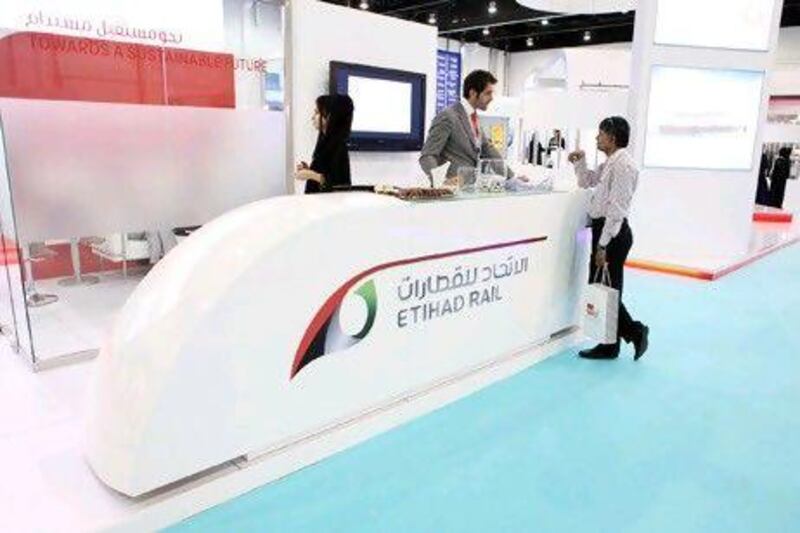The region's ports and freight companies have been thrown a lifeline by large infrastructure projects in Saudi Arabia and Abu Dhabi after the global downturn sidetracked proposed deals in Dubai worth many billions of dollars.
The contracts to transport equipment for housing projects, oil and gas and nuclear energy developments have been a welcome boost after a number of proposed high-value construction projects stalled in Dubai since 2009.
"The last few years have been relatively stable," said John Wylie, the chief executive of Agility Abu Dhabi. He was speaking at the World Ports and Trade Summit in Abu Dhabi.
In 2009, project awards totalled about US$150 billion (Dh550.94bn), on a par with the value of deals announced in 2008, a time when Dubai was the region's "engine", Mr Wylie said.
"If it hadn't been for the oil and gas projects, the nuclear programme, and then the really big push in Saudi Arabia, which announced $57bn in construction deals, it would have probably been half of that," he said.
The UAE's freight and logistics network is increasingly taking centre stage in industrial development planning as a facilitator of overall economic growth.
Khalifa Industrial Zone of Abu Dhabi (Kizad) is investing heavily to link the industrial area through a deepwater port, road and heavy rail systems. The 417 square kilometre project in Taweelah, near the border with Dubai, is expected to contribute up to 15 per cent of Abu Dhabi's non-oil and gas revenue under the emirate's Vision 2030.
Kizad is being developed by Abu Dhabi Ports Company (ADPC), which touted the adjacent Khalifa Port as an example of the region's heavy expenditure on deepwater ports that can handle the world's largest container ships. Maersk, the world's largest shipping line, recently ordered 10 vessels capable of carrying 18,000 standard containers each in a deal valued at $1.9bn. The vessels have operating costs up to 35 per cent less than ships half their size.
"Large vessels require deepwater ports and the Middle East is among the few regions able to support such ships," said Tony Douglas, the chief executive of ADPC.
DP World, which operates Dubai's Jebel Ali Port, the largest in the Middle East, estimated the average annual growth in container handling will be 8 per cent a year between 2009 and 2015 for the region's ports.
ADPC also said yesterday it had identified ports in the Western Region that will have facilities upgraded. Two of them, Sila and Mugharrag ports, will be opened by May to handle commercial cargo through new infrastructure including terminal buildings, a vessel traffic system and radar systems.
While sea freight into the Gulf dominates the regional transport industry, the planned nationwide Etihad Rail freight network, scheduled for completion about 2019, could radically redraw the logistics landscape, said Wayne Smith, the general manager for freight at Al Futtaim Logistics.
"Etihad Rail will have a massive impact on sea freight and road freight," he said. With the rail line extending to Khor Fakkhan port on the east coast of Sharjah, "do you honestly think shipping lines would continue to call into the Gulf?" he asked. "I think not."





